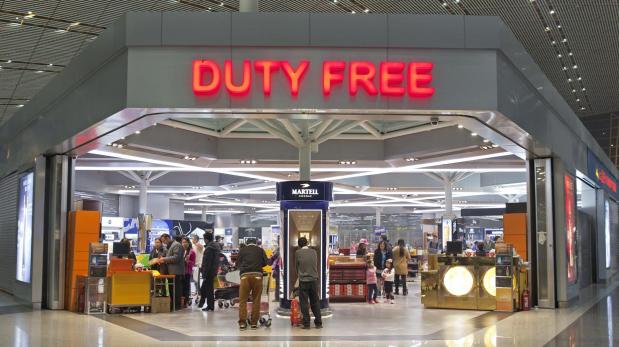 Tocumen's duty-free zone.
Tocumen's duty-free zone.
Panama and what’s ahead
HAVANA – What would happen if the Cuban state, through a possible new business enterprise, closed the year with profits above 100 million dollars?
Well… many things are possible. Heck! they could decide to invest it in the construction of a new hotel. Better yet, they might decide to stock more essential goods in commercial establishments; or perhaps dedicate the money to health and education, or building and re-building housing and buildings — we have a housing stock deficit of 880,000 units. There’s also the possibility of taking steps in dealing with the advancing age of our population… Many things would be possible when discussing the more than $100 million.
Just last year this amount was spent by Cuban residents in purchases made in Panama. And hopefully someday we will even find out what we leave behind in the Mexican resort town of Cancun, or other neighboring regions, and even in distant Russia with the existent spare parts trade that helps fix our still-circulating auto relics that circulate around the island.
Recently a Panamanian friend and colleague visiting Cuba, a bit peeved by our high prices on certain items, told me in a frank and serious tone that “we [Cubans] are stupid. If you lower the price of bottled water,” he said, “you will sell more and earn more.”
Panamanians, like half the rest of the world, know clearly that one of the things they have that attracts tourists is what they buy and sell. And although in the international airport in Tocumen, on the way to the rest of the Caribbean or the North American continent, a simple hot dog costs you ten bucks. But once outside the airport walls, you run into the well-known better business offers that translate to good and cheap.
They are so aware of these transactions that they have not wasted any time in issuing Decree 613 this pst Oct. 22, especially designed for Cubans and Venezuelans. It is a simple tourist card worth 20 balboas or dollars, paid for at the consulate that lasts you 30 days and allows you to make your purchases on the isthmus without the need of a visa — in addition to other requirements like possession of a card identifying you as self employed, your round-trip ticket, and proof in your passport that you have traveled elsewhere.
In fact, the same day the Decree was issued, just a few days ago, truck loads of people were seen standing on 24th Street in Havana’s Quinta Avenida (Fifth Avenue) in the Miramar neighborhood where the Panamanian embassy stands.
What’s to happen? It will be an avalanche of people with good, bad and ugly intentions that will arrive in Panama City, where they expect more business and a possible forthcoming headache. According to Panamanian sources, so far this year 35,900 Cubans have traveled there. Copa, its flagship airline, continues to celebrate the great business. And after the ‘harvest’ that was Ecuador, they now await a new one near the Panama Canal.
In the end, or to begin this story, the Cuban government might react to the loss of so much money that ends up elsewhere, although I doubt it. And there is no other reason for this to be happening than the authorities themselves who have yet to set up a wholesale market or created purchasing mechanisms for the private sector, or have yet to a new system of private importers who are regulated by the law. So you see, if such actions are not viable, for whatever the reason including incompetence, then the moving of those stores from Panama’s duty-free zone in Colon to Havana sounds like wishful thinking.
Actually, this is just the beginning. Let us follow it and see what develops — on both sides.


